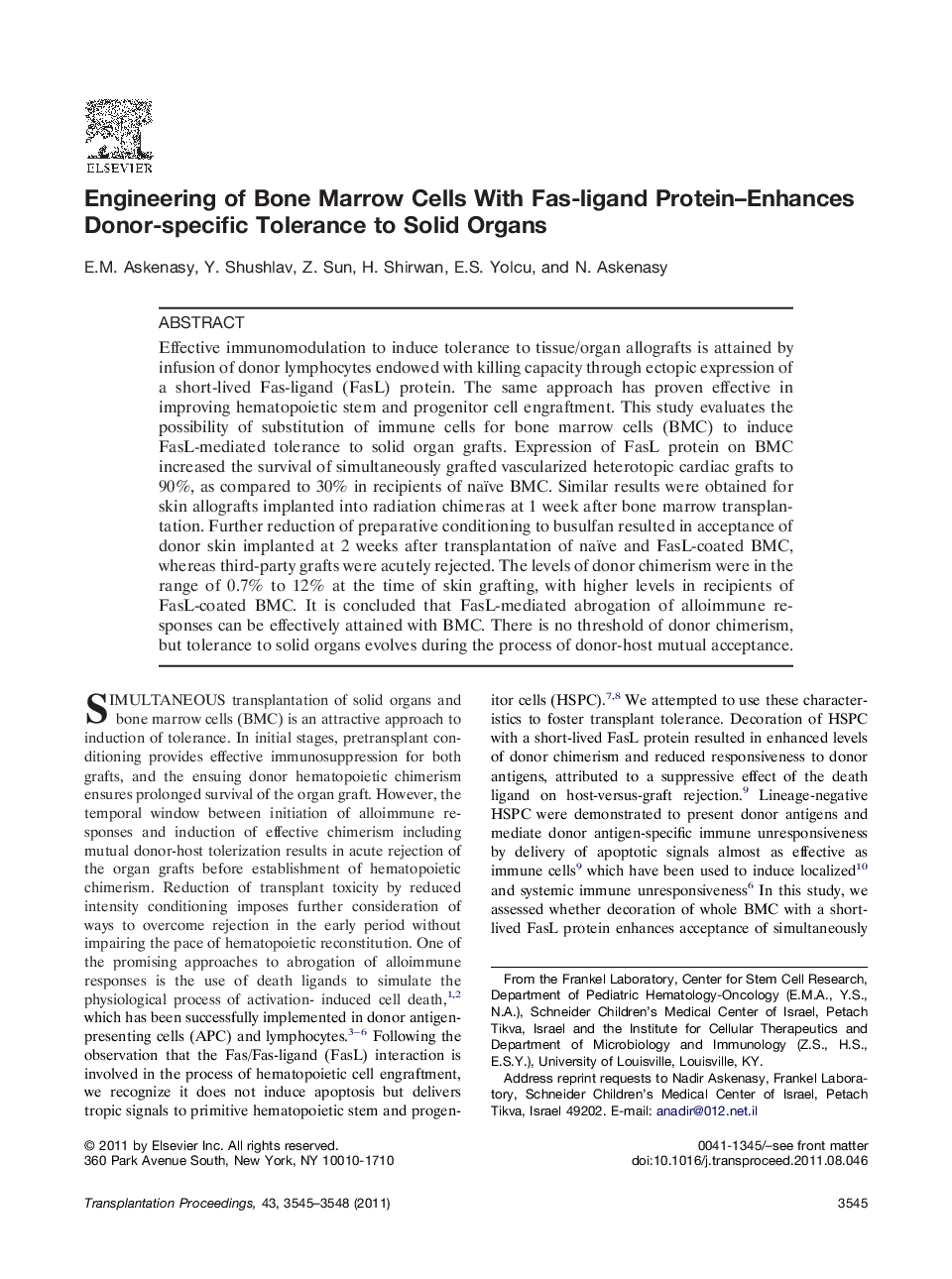| Article ID | Journal | Published Year | Pages | File Type |
|---|---|---|---|---|
| 4258639 | Transplantation Proceedings | 2011 | 4 Pages |
Effective immunomodulation to induce tolerance to tissue/organ allografts is attained by infusion of donor lymphocytes endowed with killing capacity through ectopic expression of a short-lived Fas-ligand (FasL) protein. The same approach has proven effective in improving hematopoietic stem and progenitor cell engraftment. This study evaluates the possibility of substitution of immune cells for bone marrow cells (BMC) to induce FasL-mediated tolerance to solid organ grafts. Expression of FasL protein on BMC increased the survival of simultaneously grafted vascularized heterotopic cardiac grafts to 90%, as compared to 30% in recipients of naïve BMC. Similar results were obtained for skin allografts implanted into radiation chimeras at 1 week after bone marrow transplantation. Further reduction of preparative conditioning to busulfan resulted in acceptance of donor skin implanted at 2 weeks after transplantation of naïve and FasL-coated BMC, whereas third-party grafts were acutely rejected. The levels of donor chimerism were in the range of 0.7% to 12% at the time of skin grafting, with higher levels in recipients of FasL-coated BMC. It is concluded that FasL-mediated abrogation of alloimmune responses can be effectively attained with BMC. There is no threshold of donor chimerism, but tolerance to solid organs evolves during the process of donor-host mutual acceptance.
